Are you suffering from complex PTSD? Complex post-traumatic stress disorder or C-PTSD is a serious mental illness that can make you feel distrustful and difficult to manage your emotions.
It is characterized by symptoms of PTSD along with other additional symptoms. However, C-PTSD is a developmental trauma disorder (DTD) that is separate from PTSD. Here we are going to take a closer look at this disorder and find out if you are suffering from Complex PTSD.
What Is Complex PTSD?
Most of us are familiar with PTSD or post-traumatic stress disorder. Recognized in 1980, PTSD is a trauma and stressor-related mental disorder that affects survivors of traumatic events like traffic accidents, warfare, natural disasters, or sexual assault. Complex post-traumatic stress disorder or Complex PTSD is a separate, yet closely related, psychological disorder that results from repeated trauma over a period of time, instead of a single event.
Identified in 1994, Complex PTSD is a severe and devastating condition that can develop due to prolonged, repetitive trauma, mostly experienced during childhood, adolescence, or young adulthood. People who have lived through months or years of emotional neglect, bullying, domestic violence, disrupted attachment, humiliation, or child abuse are more likely to develop this condition.
The long-term effects can not only affect your thoughts and emotions, but it can also drastically impact your mood, behavior, personality, identity, relationships, and the quality of your life.
Related: How Toxic Family Dynamics Can Cause C-PTSD In Emotionally Intense Children
It is believed over 8% of people in the United States experiencing the symptoms of complex post-traumatic stress disorder. Complex PTSD is often a result of chronic psychological, physical and sexual abuse or neglect during childhood. Repeated domestic violence, bullying in school or the workplace can lead to this condition.
Experiences related to kidnapping, captivity, slavery, servitude, prisoners of war, residential schooling, or even cults, with little or no opportunity to escape may also contribute to the development of Complex PTSD. Undiagnosed sufferers may feel scared, helpless, worthless, shame or guilt and have a distorted view of their own identity.

Signs Of Complex PTSD
Are you experiencing the symptoms of Complex PTSD?
The truth is, you may be affected by this damaging psychological condition and you might not even know it. Some of us may realize that we are not well, but most of the time we brush it off as anxiety or stress, and hence the condition often goes undiagnosed. Recognizing the signs and symptoms of Complex PTSD will help us to identify the disorder and enable us to seek the right treatment.
Here are a few common symptoms of Complex PTSD that you need to look out for:
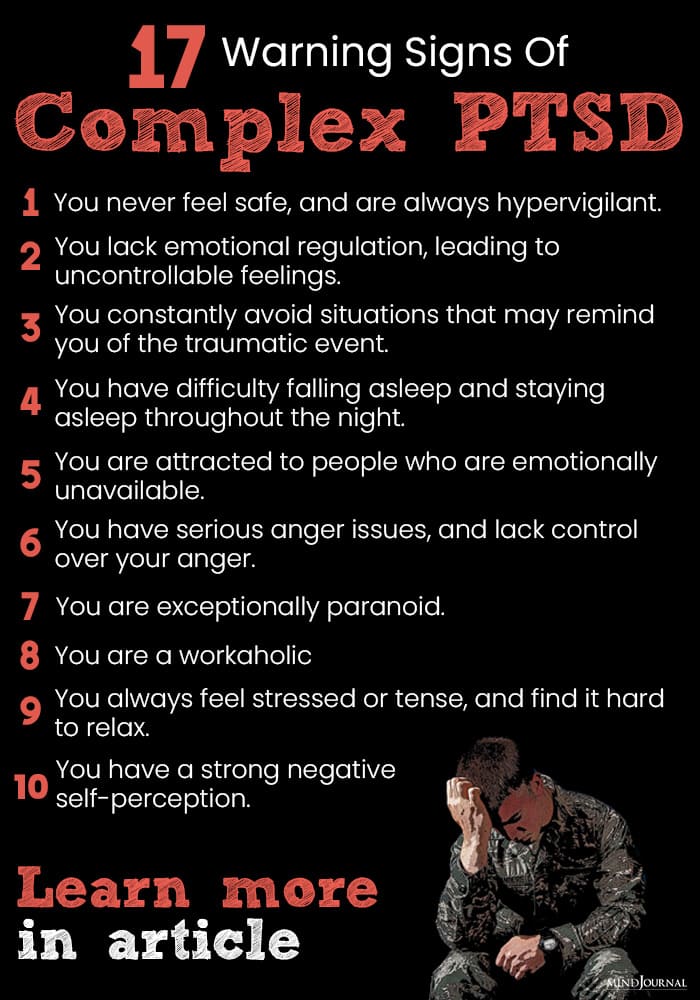
1. You don’t feel safe
Hyperarousal and being on constant alert is one of the most primary symptoms. You always feel hypervigilant and think that something bad is about to happen to you. You have a strong inner feeling that everything will suddenly turn upside down and your life will be ruined.
Although you may not worry about being assassinated, you may feel that everything you value in life may be taken away from you. Even though your loved ones may try to reason with you, confusion will dominate your mind when you suffer from Complex PTSD.
2. You lack emotional regulation
Due to your condition, you are unable to manage your emotions leading to uncontrollable feelings. Your constant inability to regulate emotions makes you more vulnerable to negative emotions like anger, fear, persistent sadness, and depression. This may also result in disruptive behaviors and make you respond inappropriately in a given situation.
3. You are unable to relax
Due to all the prolonged trauma, anxiety, and stress, you can never seem to relax. You always feel stressed or tense. You don’t trust people enough to let them get intimate or close with you. Although you may realize that you desperately need to relax, practicing relaxation techniques like meditation and yoga seem revolting and sickening.
As our gut health and mental health are interconnected, you may also experience frequent stomach problems due to high levels of anxiety.
Related: Structural Dissociation: How Complex Trauma Causes A Split In Our Being
4. You have trouble sleeping
As you are constantly in a state of hypervigilance and hyperarousal, you have difficulty falling asleep and staying asleep throughout the night. You may also find it difficult to wake up early in the morning. As you don’t get enough rest and sleep, it further affects your thoughts, emotions, moods, and physical health.
5. You avoid trigger situations
You constantly avoid situations that may remind you of the traumatic event. The experience was so damaging and destructive that now you may avoid situations that may be remotely associated with it, such as large crowds, a particular scent, a specific type of activity like driving, or anything that can remind you of the past trauma.
Encountering such situations can lead to anxiety, panic, and other inappropriate reactions. For some, this avoidance behavior can be so intense that it can prevent them from leaving their homes due to fear of a panic attack.

6. You have a strong negative self-perception
Years or months of chronic trauma and stress can dramatically lower your self-esteem, leading to intense feelings of shame, guilt, and self-doubt. Due to your appalling self-image, you constantly criticize and hate yourself.
You feel disgusted by your own self, believing that you are the most repulsive, ugly, predatory, and awful human being. This can even affect your sexuality and make you feel sickening.
7. You are attracted to people who are emotionally unavailable
You have an unhealthy attachment style that makes you gravitate towards highly unavailable individuals. Although you may seem to despise needy & ‘desperate’ people, you always fall for people who are disengaged, avoidant and uninterested. You may even feel drawn to narcissistic people who are suffering from their own emotional and psychological issues. This makes you overlook and even push away people who are present for you.
Related: Can We Inherit Trauma Genetically?
8. You may feel detached from the trauma
Complex PTSD can result in an altered state of consciousness. Temporary changes in your consciousness can significantly alter your rational functioning, making you forget crucial events. You may feel detached from your memories, thoughts, emotions, or sense of identity. You may even forget your trauma. This is known as dissociation.
9. You have serious anger issues
You have a really bad temper and lack control over your anger. Although this anger is mostly directed at your own self, you may often lash out at others without any justifiable reason or provocation. But this anger is only a manifestation of the fear, trauma, and anxiety you hold inside you. You are constantly worried about your life becoming terrible once again and you feel helpless.
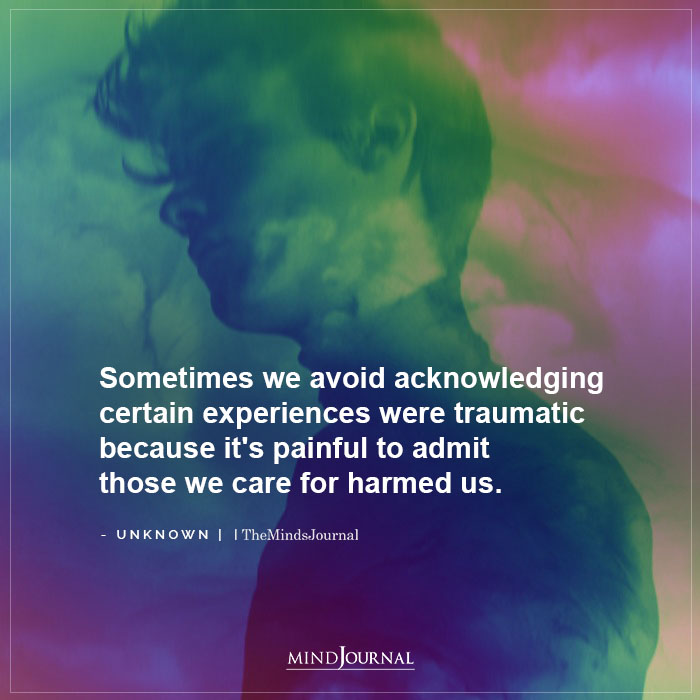
10. You are exceptionally paranoid
You constantly feel threatened by others and worry that others will humiliate or insult you at every opportunity. You have an inner belief that people will always act against you even though there is no reason for it.
You are highly anxious about going on social media as it is mostly a toxic and unkind environment. Sadly, you believe the real world also works as meanly and arbitrarily. Paranoia has led to an unrealistic distrust of people in general.
11. You have difficulty with relationships
Relationships are never easy for you. Due to your distrust of people, you find it hard to get intimate with anyone. You lack confidence while interacting with others which makes you avoid relationships altogether. However, some people with complex PTSD may look for developing relationships with toxic, abusive, and narcissistic people as this is what they are familiar with.
Related: PTSD. From Surviving to Thriving
12. You love being alone most of the time
Your love for spending time alone is motivated by your fear of other people. Instead of enjoying your own company, your preference for being alone is a reflection of your distorted belief that people are hostile and dangerous. This can make you aloof, isolated, and reclusive leading to further mental health issues.
13. You don’t want to exist anymore
Unlike people with depression, you may not have suicidal thoughts and tendencies. But your trauma and anxiety can be so damaging & frustrating that it makes you want to cease to exist. You believe it would have been better if you were never born.
14. You lose your systems of meanings
Systems of meaning are your religious faiths, values, beliefs, hopes, and perceptions about people, spirituality, and the world in general. Complex PTSD can make you experience a strong sense of hopelessness and despair about people and the world. It can also make you doubt previously-held core beliefs and question yourself.
15. You are very rigid
Stiffness is an integral aspect of your personality. You are not very flexible about your routines and find it hard to adjust to change. Your fear of change makes you rigid and you want to have complete control over your environment to protect yourself from any looming disorder. This makes you very organized and obsessed with perfection and order.
Related: PTSD – Here Are 5 Ways To Cope With It
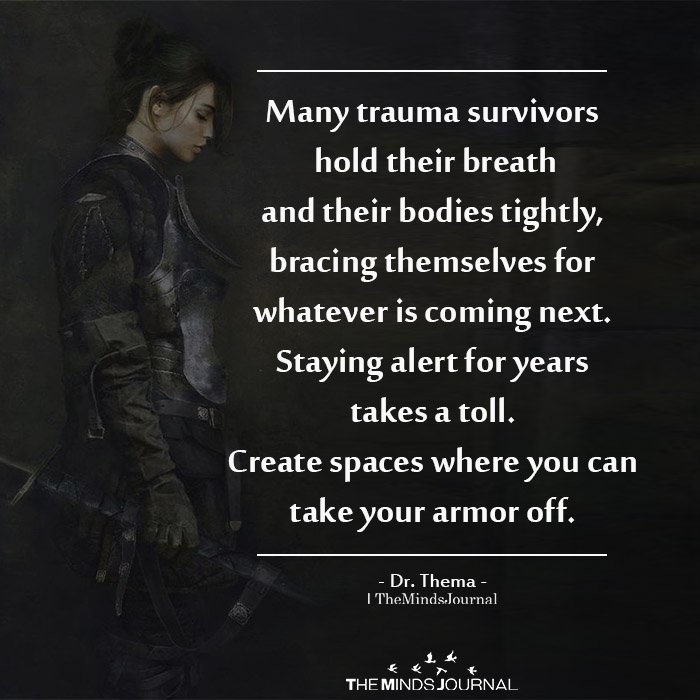
16. You are a workaholic
You work excessively to drown out your fears, worries, and anxieties. Keeping yourself constantly busy with work makes you feel safe as it keeps these thoughts away. You also believe that being successful, rich, and popular will make you feel respected and reassured. But you can never feel that way.
Although a room full of people may applaud you, you are constantly worried about that one person who may mock you. Your low self-esteem and high self-disgust constantly make you feel on edge. Staying away from work, holidays and retirement can seem like a nightmare.
17. You become preoccupied with your abuser
Complex PTSD can often distort your perception of the abuser and influence your relationship with them. You may become obsessed with your abuser, completely submit yourself to their will or become fixated on getting revenge for the trauma and abuse.
Complex PTSD Is Treatable

If you can relate to more than seven of these warning signs then it’s time to pay attention and consult a mental health professional immediately. You don’t have to allow those traumatic events to dictate the rest of your life or affect your mental and physical health any longer. Despite the tragedy that you may have experienced, Complex PTSD can be overcome through a combination of therapy and medication.
If you or someone you know has experienced repeated, prolonged trauma and are struggling with any of these symptoms, then make sure to seek help from a qualified mental health professional.
Although your healing journey may be long and difficult, it will guide you out of the darkness of trauma and help you find your genuine self once again.
Frequently Asked Questions (FAQs)
Is C PTSD real?
Complex post-traumatic stress disorder or Complex PTSD is a separate, yet closely related, psychological disorder that results from repeated trauma over a period of time, instead of a single event.
What can trigger complex PTSD?
Experiences related to kidnapping, captivity, slavery, servitude, prisoners of war, residential schooling, or even cults, with little or no opportunity to escape may also contribute to the development of Complex PTSD.
How do you deal with C PTSD?
Despite the tragedy that you may have experienced, Complex PTSD can be overcome through a combination of therapy and medication.
How to live with someone who has complex PTSD?
If you or someone you know has experienced repeated, prolonged trauma and are struggling with any of these symptoms, then make sure to discuss their triggers and support them to seek help from a mental health professional.
What is worse PTSD or C-PTSD?
Trauma of any kind is complicated. PTSD is a trauma and stressor-related mental disorder. Whereas, Complex PTSD is a severe and devastating condition that can develop due to prolonged, repetitive trauma, mostly experienced during childhood, adolescence, or young adulthood. Both are equally concerning conditions.
How do you comfort someone with Complex PTSD?
If you want to help and comfort someone with C-PTSD, encourage them to pursue hobbies that please them, and share their thoughts and feelings with their loved ones.
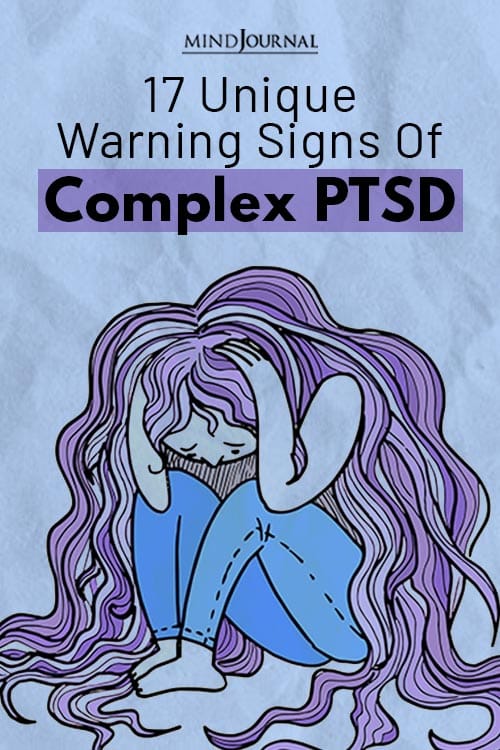
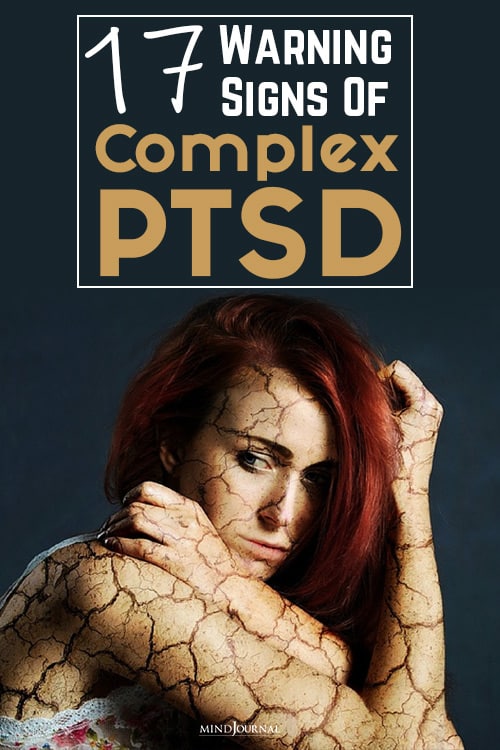
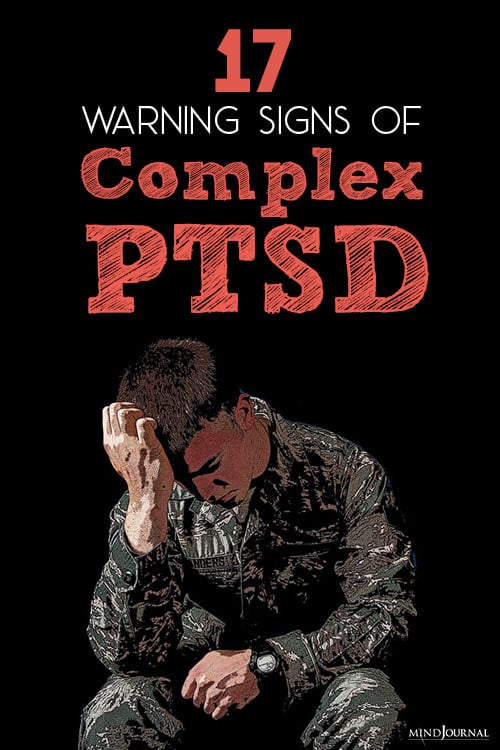









Leave a Reply